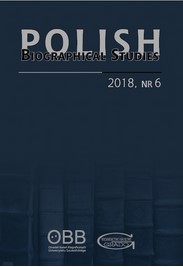Generał Broni Lucjan Żeligowski (1865–1947). Przyczynek do biografii
Army General Lucjan Żeligowski (1865–1947). Contribution to a biography
Author(s): Andrzej WojtaszakSubject(s): Military history, Studies in violence and power, Pre-WW I & WW I (1900 -1919), Interwar Period (1920 - 1939), WW II and following years (1940 - 1949)
Published by: Wydawnictwo Naukowe GRADO
Keywords: biography; Russian-Japanese War; generals of the Polish Army; coup d’état in 1926; World Wars; Slavophilism;
Summary/Abstract: General Lucjan Żeligowski came from a Polish noble family, the coat of arms “Bończa”. His ancestors fought against the Swedes in the sixteenth century and his father participated in the January Uprising in 1863. He is one of the most controversial figures in the corps of generals of the Second Polish Republic. He fought in the Russian-Japanese War (1904–1905). During the Great War, after the consent of the Russian authorities to create Polish military formations, he was a co-organizer of the Polish Riflemen Brigade, he fought in the ranks of the Polish Rifle Division and the Polish First Corps. In the final period of the war he co-organized the 4th Polish Rifle Division, with which he reached Poland via Odessa and Bessarabia. He fought with the armies of the Western Ukrainian People’s Republic and in the Polish-Soviet War – the Northern Front (10 DP) and in the fighting at Radzymin (during the Battle of Warsaw). After the war, the 1. Lithuanian-Belorussian Infantry Division took Vilnius and led to the creation the Republic of Central Lithuania. „Żeligowski’s Mutiny” resulted in joining this area to Poland. In the Polish Army he was the commander of the Army Inspectorate No. 2 in Warsaw and the Minister of Military Affairs. After Piłsudski’s coup d’état (the May coup), he stood at the head of the Liquidation Commission set up to clarify the circumstances and course of May events in 1926. He was also an Inspector of the Army in the General Inspectorate of the Armed Forces. On August 31, 1927, he retired. In 1928 he became the president of the Chapter of the Order of Polonia Restituta and a member of the State Tribunal. In 1935 he was elected a member of the Parlament (Sejm) of the 4th term from the list of the Non-Partisan Block of Cooperation with the Government – he chaired the Parlament Military Commission, and then the Parlament (Sejm) of the 5th term from the non-party list. During World War II, he was a member of the National Council of the Republic of Poland, chairman of its Military Committee and Chancellor of the Order of Virtuti Militari. A supporter of Slavophile in the postwar period, he was in favor of cooperation with the USSR. He died in London in 1947. He rests at the Military Cemetery in Powązki in Warsaw.
Journal: Polish Biographical Studies
- Issue Year: 7/2019
- Issue No: 1
- Page Range: 67-93
- Page Count: 27
- Language: Polish

